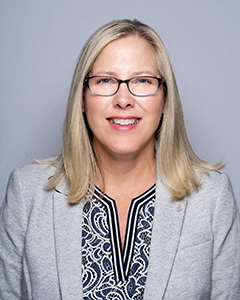Originally published: Harris Burgon, Bigeasymagazine.com, May 17th, 2021
Edited for brevity & clarity by Gleba & Associates
The word “estate’ has always been connected to “ultra-rich” families, those with a lot to leave behind after their death. However, definitions have changed, and anyone who has anything to leave behind needs to plan their estate. “Estate planning” essentially becomes your family’s guidebook once you are no longer in the picture. Sounds important? Definitely, and here’s why.
What is estate planning?
Estate planning is similar to writing a last will, which can now be made easily using online builders and forms. However, writing one is not limited to what happens to your house, car, company, or other assets after you die. It also encompasses the question of who will take care of your children if they are orphaned, for example. Moreover, your instructions for burial and other smaller things can be tackled as well.
In a nutshell, estate planning is all about:
- Securing your assets
- Protecting your family or heirs
- And leaving last instructions and wishes.
These will be documented, signed, notarized, and filed, making its contents fully and legally enforceable.
What happens if I don’t plan my estate?
If you leave no specific instructions, default rules will apply upon your death. Therefore, other living family members and government representatives will decide for you. Of course, that won’t always be in your best interest. Here’s a rundown of the consequences of not writing your will:
- Your burial preferences may not be honored. Whether you prefer cremation or a traditional burial, those you leave behind might decide based on their preferences or convenience.
- Your properties will be managed by someone you don’t necessarily trust. If you don’t have an appointed executor to your will, a clueless family member may be tasked with filing taxes, transfers, and managing your estate. Unfortunately, not everyone knows how to do these things properly.
- Some of your loved ones may not get an inheritance. Under the Intestate Succession Act, common-law marriages are not recognized. As a result, your partner may not get a portion of your estate if you wish otherwise.
- Your organization of choice may be cut from receiving donations. While many people spend their lives supporting charities, it is unfortunate that their tradition of giving ends with their death. For those committed to leaving a legacy, your organization of choice should be listed in the will.
- The government will assign guardians for your minor children. If no parent is left and the children are orphaned, social services will step in and appoint a guardian. Unfortunately, there have been many stories of abuse or misuse of funds, even if the guardian is a relative. So, make sure you name someone you trust wholly.
- You can no longer put up a trust fund for your children. Upon death, assets are typically liquidated or sold to pay for debts, taxes, or processing fees. This means that if you have no specific instructions about saving a portion for your children, they will have nothing by the time they become of legal age.
What are the advantages of estate planning?
Aside from skipping all the consequences mentioned above, estate planning can also save your family a lot of trouble and a lot of money. A detailed document with your instructions will alleviate the hassle and provide comfort while your loved ones emotionally recover from their loss. The following are the top reasons why you need to plan these things:
- It can help you skip the process of “probate,” which would entail validating your will, paying off your remaining taxes and bills, and then distributing the remaining assets or amount to your family.
- You can avoid additional taxes. Once someone passes away, their properties are subject to a massive sum of taxes such as inheritance taxes and federal estate taxes. If you set up a trust between you and your spouse, you can lessen the transfer taxes or eliminate them entirely. Those who are elderly or have been diagnosed with terminal diseases may want to transfer their properties ahead of time to avoid such hassle.
- You can choose who will care for you. There are cases when people become unable to decide for themselves either due to illnesses or old age. When people become mentally incapable of taking care of themselves, they will want someone to manage their finances in their favor.
- Appoint a trusted guardian for your children. Should your young children be orphaned, you can name someone you trust to be their guardian. This doesn’t necessarily need to be anyone from your family as long as they qualify and prove their capacity to raise your children.
- Avoid gold diggers. Some family members are just in it for the money, so you must write these people off your will. Through proper and early estate planning, you can ensure that the people you love and care for receive what you want them to.
Things to remember
- Though estate planning can be done by yourself through DIY websites, make sure you know the technicalities of your properties and other assets.
- If your estate is complicated, you may want to seek advice from attorneys who specialize in this matter. You may also ask them how to reduce taxes or prevent other complications.
- Ensure everything is legal and valid by having the documents witnessed and notarized.
Estate planning is crucial to securing a comfortable life for your loved ones. More importantly, it will help them get through difficult times without having to worry about the assets you leave behind.
Need guidance? We’re happy to help and can provide contact information for estate attorneys; don’t hesitate to reach out!





 Invest Well. Manage Well. Live Well.
Invest Well. Manage Well. Live Well. Gary is a Financial Associate at Gleba & Associates, Inc., joining our team in June 2020. After graduating from Walsh College with a Bachelor’s Degree in Finance in 2013, he began his career at Raymond James Financial Services. He then moved to the world of banking, working as a banker with Chase Private Client and then as an Assistant Vice President, Financial Advisor with PNC Investments. Gary has expertise in all aspects of financial planning including investment management, higher education planning, life insurance, and long-term care insurance needs analysis. When he gets away from the office, he loves to spend time with his wife, Lauren, and two daughters, Hadley and Harper. He enjoys woodworking, boating, summer weekends at the family cottage, spending time outdoors and traveling.
Gary is a Financial Associate at Gleba & Associates, Inc., joining our team in June 2020. After graduating from Walsh College with a Bachelor’s Degree in Finance in 2013, he began his career at Raymond James Financial Services. He then moved to the world of banking, working as a banker with Chase Private Client and then as an Assistant Vice President, Financial Advisor with PNC Investments. Gary has expertise in all aspects of financial planning including investment management, higher education planning, life insurance, and long-term care insurance needs analysis. When he gets away from the office, he loves to spend time with his wife, Lauren, and two daughters, Hadley and Harper. He enjoys woodworking, boating, summer weekends at the family cottage, spending time outdoors and traveling. Conor is a Financial Associate at Gleba & Associates, Inc., where he started in 2018. Conor has prior experience in the financial planning industry, as well as in the insurance industry. His high level of understanding insurance and financial products helps him in assessing the needs of our clients. He holds a Bachelor of Science degree in Business Administration with a concentration in Finance from the University of Detroit Mercy. You can often find Conor playing soccer or walking with his two dogs Milo, and Ellie. He is also an avid follower of the Detroit Tigers, Detroit Red Wings and his alma mater, the University of Detroit Mercy Titans.
Conor is a Financial Associate at Gleba & Associates, Inc., where he started in 2018. Conor has prior experience in the financial planning industry, as well as in the insurance industry. His high level of understanding insurance and financial products helps him in assessing the needs of our clients. He holds a Bachelor of Science degree in Business Administration with a concentration in Finance from the University of Detroit Mercy. You can often find Conor playing soccer or walking with his two dogs Milo, and Ellie. He is also an avid follower of the Detroit Tigers, Detroit Red Wings and his alma mater, the University of Detroit Mercy Titans. Lorie Heitzer is our Financial Associate at Gleba & Associates, Inc., where she has been a valuable employee for more than a decade! In her current role, Lorie assists with client reviews, implements client financial planning, and handles preparation of investment paperwork. During her time with Gleba & Associates, Lorie has earned her Series 6 (Investment Company Variable Contracts Representative), 63 (Uniform Securities Agent) and Life Insurance Licenses, allowing her to move into her current role where she assists clients in both of these areas. Lorie and her husband Bill, along with their daughters Lauren and Alexandria, and sons-in-law, Andrew & Joe, enjoy golf and make it a family event whenever possible. Her tenure at Gleba & Associates speaks volumes to her passion for the firm’s family atmosphere and her dedication to our clients and their financial and insurance needs.
Lorie Heitzer is our Financial Associate at Gleba & Associates, Inc., where she has been a valuable employee for more than a decade! In her current role, Lorie assists with client reviews, implements client financial planning, and handles preparation of investment paperwork. During her time with Gleba & Associates, Lorie has earned her Series 6 (Investment Company Variable Contracts Representative), 63 (Uniform Securities Agent) and Life Insurance Licenses, allowing her to move into her current role where she assists clients in both of these areas. Lorie and her husband Bill, along with their daughters Lauren and Alexandria, and sons-in-law, Andrew & Joe, enjoy golf and make it a family event whenever possible. Her tenure at Gleba & Associates speaks volumes to her passion for the firm’s family atmosphere and her dedication to our clients and their financial and insurance needs. Terri is the Service Manager at Gleba & Associates, Inc., Joining the team in April, 2015. In her role, she handles client service requests and underwriting. Terri’s previous experience in 401(k) Retirement Plans, Payroll and Human Resource Administration is invaluable, allowing Gleba & Associates to grow and run efficiently. This is knowledge that can also assist our small business clients as they grow their businesses. Terri enjoys spending time with family, which includes her husband, Gerry and her two children, Vincent and Genna. She loves the outdoors and camping with family in their RV. Terri looks forward to continuing the high level of customer service you have come to expect from Gleba & Associates!
Terri is the Service Manager at Gleba & Associates, Inc., Joining the team in April, 2015. In her role, she handles client service requests and underwriting. Terri’s previous experience in 401(k) Retirement Plans, Payroll and Human Resource Administration is invaluable, allowing Gleba & Associates to grow and run efficiently. This is knowledge that can also assist our small business clients as they grow their businesses. Terri enjoys spending time with family, which includes her husband, Gerry and her two children, Vincent and Genna. She loves the outdoors and camping with family in their RV. Terri looks forward to continuing the high level of customer service you have come to expect from Gleba & Associates! Michael is the Marketing Manager at Gleba & Associates, Inc., where he began in August 2017. In his position, Michael creates and develops marketing strategies to enhance the image of Gleba & Associates, and helps maximize the Client-Advisor relationship. He is also in charge of company events, seminars, and educational workshops. Michael has a Bachelor of Applied Arts Degree in Integrative Public Relations from Central Michigan University. When he is not in the office, Michael can most likely be found playing billiards, playing poker, on the tennis court, or rooting on the Utica Unicorns baseball team. Michael stays active by going to the gym and going to the dog park with his Labrador-mix, Milton. His approachable attitude, along with experience in marketing, communications, and social media, makes him a valuable asset to the Gleba & Associates team.
Michael is the Marketing Manager at Gleba & Associates, Inc., where he began in August 2017. In his position, Michael creates and develops marketing strategies to enhance the image of Gleba & Associates, and helps maximize the Client-Advisor relationship. He is also in charge of company events, seminars, and educational workshops. Michael has a Bachelor of Applied Arts Degree in Integrative Public Relations from Central Michigan University. When he is not in the office, Michael can most likely be found playing billiards, playing poker, on the tennis court, or rooting on the Utica Unicorns baseball team. Michael stays active by going to the gym and going to the dog park with his Labrador-mix, Milton. His approachable attitude, along with experience in marketing, communications, and social media, makes him a valuable asset to the Gleba & Associates team. Moiz is our Financial Associate at Gleba & Associates, Inc., where he began in 2013 after working for Bank of America and Thomson Reuters in various financial roles. In his position, Moiz assists in the research of financial solutions in order to meet client’s needs, conducts client reviews, provides insurance quotes, offers detailed financial plans, and delivers follow-up services to our clients. Before moving to the United States in 2004, Moiz grew up in rural India, where he was raised in a family of entrepreneurs. This allowed him to quickly learn the value of financial investment. Moiz holds a Bachelor of Commerce Degree in Accounting from Gujrat University and a B.B.A. in Management and an MBA from Walsh College of Accountancy and Business Administration, where he was elected as a member of Delta Mu Delta, the International Honor Society in Business Administration in recognition of high scholastic attainment. Moiz enjoys spending time with his wife, Tasneem, son, Taha, and family. He also loves playing tennis and rebuilding computers. His expertise in the areas of banking, mortgage and taxation helps to provide our clients with distinct portfolio advice as well as overall financial direction and growth.
Moiz is our Financial Associate at Gleba & Associates, Inc., where he began in 2013 after working for Bank of America and Thomson Reuters in various financial roles. In his position, Moiz assists in the research of financial solutions in order to meet client’s needs, conducts client reviews, provides insurance quotes, offers detailed financial plans, and delivers follow-up services to our clients. Before moving to the United States in 2004, Moiz grew up in rural India, where he was raised in a family of entrepreneurs. This allowed him to quickly learn the value of financial investment. Moiz holds a Bachelor of Commerce Degree in Accounting from Gujrat University and a B.B.A. in Management and an MBA from Walsh College of Accountancy and Business Administration, where he was elected as a member of Delta Mu Delta, the International Honor Society in Business Administration in recognition of high scholastic attainment. Moiz enjoys spending time with his wife, Tasneem, son, Taha, and family. He also loves playing tennis and rebuilding computers. His expertise in the areas of banking, mortgage and taxation helps to provide our clients with distinct portfolio advice as well as overall financial direction and growth.